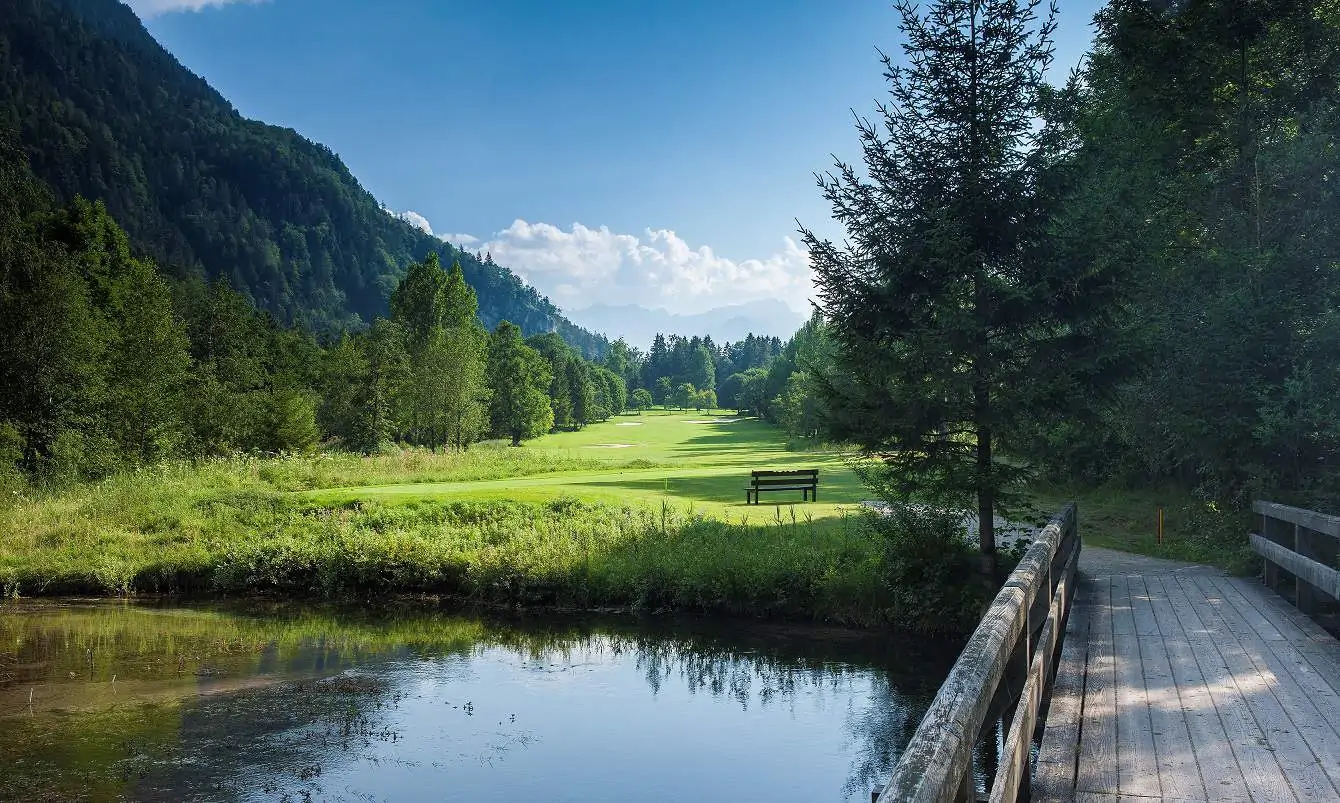GC Garmisch helps to secure Munich’s drinking water
If you were looking for a motif for an advertising film on the subject of water, you would probably end up here: The Bavarian foothills of the Alps with the Zugspitze in the background, pure nature in the foreground with trees, bushes and the small stream that also meanders through a golf course. In Oberau, at the GC Garmisch-Partenkirchen, the topic of drinking water has been a hot topic for a few months – not because there is a problem with it, but because the golf course has decided to cooperate with the Munich public utility company to protect the city’s groundwater resources Munich contributes.
Cooperation with organic farmers, forestry and golf course
Bavaria’s capital gets its drinking water in the Mangfalltal and Loisachtal. Luckily, as Rainer List from Stadtwerke München sums it up, “we are in the fortunate position of being able to get excellent water in this area, with a nitrate value of around four milligrams per liter. And we have no problem with scarcity either.” Nevertheless, the protection of water as a resource is essential for a city of over a million inhabitants like Munich.
According to List, work is being done to “maintain the excellent condition of the groundwater” through cooperation with organic farming and near-natural management of forestry in the form of the so-called water protection forest. The golf course in Oberau with the GC Garmisch-Partenkirchen is part of the Loisach Valley, which is intended to secure the drinking water supply in the long term. It sits completely in the water protection area.
With the help of an action plan, that precisely records the fertilizers and pesticides used on the golf course, a management system certified according to ISO 14001 and based on the certification system of the DGV “Golf & Nature”, it is now precisely documented, what is happening on the land. According to List, this is also a great advantage for the golf club, “because otherwise there is already the prejudice that the maximum amount of funds is first distributed on a golf course, so that everything is nice and green.”
Subsidies for near-natural management
The documentation proves the opposite: “In fact, it’s really only about very small quantities, because the intensively used area is only the greens. If we compare this with organic farming, for example, we are already dealing with completely different surface areas.” Just like the organic farmerswho receive a subsidy from Stadtwerke München for their conversion to extensive management, the GC Garmisch-Partenkirchen now also receives 8000 euros in funding per year, which would even increase if the club received the silver certification of “Golf & Nature”.
Apart from the subsidy, the club now also has up-to-date documentation at hand, which proves that the golf course has not had any negative impact on the state of the groundwater. The image of the water polluter often attached to golf courses is therefore unfounded. On the contrary: pure nature experience is the motto in Oberau. When looking at the small pond, it becomes clear – the water not only looks so pure, it is.
Photo: Par-Verlag
20 percent of the daily water requirement of the city of Munich, a total of 300 to 330 million liters a day, is obtained here in the Loisachtal.
Photo: Stadtwerke München/Ziggy Heinrich Hueler









